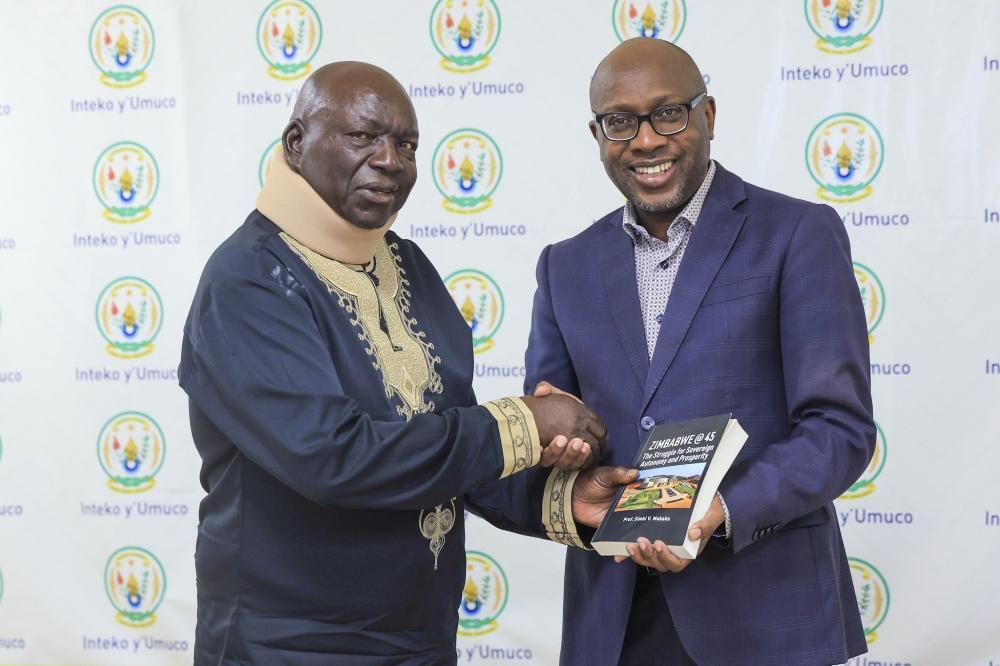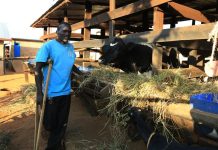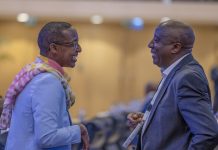Africa-Press – Rwanda. Rwanda’s liberation struggle will be among the key exhibits at the upcoming Museum of African Liberation in Harare, Zimbabwe.
The facility, which was initially designated for only seven countries to display Africa’s diverse liberation history, granted Rwanda a space in recognition of the significance of its liberation and the transformative impact it continues to have on the nation’s progress.
The idea behind the Museum is the “decolonisation of Africa and shaping Africans to become the solution to Africa’s problems.”
On August 20, as a delegation from the Museum of African Liberation in Zimbabwe concluded a courtesy visit to Rwanda Cultural Heritage Academy (RCHA) to learn about the history of Rwanda’s liberation struggle.
The two-day visit was also a key step in strengthening collaboration between two nations in preserving and promoting shared liberation histories.
“The Museum that we’re building in Harare is African oriented. It is meant to store artefacts relating to Africa’s liberation. It will be visited by many people not just from the continent,” noted Zhou Pritchard, Chairman and Board Member of the Institute of African Knowledge (INSTAK), the Zimbabwe-based Pan-African organisation that is entrusted to spearhead the project.
“This will be the centre of African history especially in the respect of liberation of Africa. Therefore, if Rwanda, which is a legitimate country, secures a space at this Museum, the issues that have been misplaced, wrongly interpreted by international media, Harare will become a place where people can go and learn about the actual history of what happened in Rwanda,” he added.
During their visit, the delegation toured the Kigali Genocide Memorial and the Campaign Against Genocide Museum, and received presentations related to several other national liberation sites, including Mulindi and the Gikoba Trail, among others.
Originally, only seven countries, Angola, Algeria, Zimbabwe, South Africa, Namibia, Mozambique, and Cape Verde, were meant to exhibit their liberation histories at the facility, which is now more than 50 percent complete.
However, Rwanda was later included because its liberation story, rooted in Pan-Africanism and the principle of finding African solutions to African problems, was considered one of the books too.
The inclusion is also part of the ongoing Memorandum of Understanding (MoU) drafting process between the Museum of African Liberation and the Rwanda Cultural Heritage Academy (RCHA).
“Among the key items on the agenda are the initial planning for the 50m2 exhibition space allocated to Rwanda at the Museum of African Liberation in Harare,” noted Ambassador Robert Masozera, Director General of RCHA.
“The delegation was able to witness how Rwanda’s liberation history is preserved and conserved in museums, archives, and how it is taught in schools. This was to show them how liberation sparked the overall progress of our country and the broader context Rwanda’s liberation shares with African liberation narratives,” he said.
“The RPF Inkotanyi drew a lot of inspiration from freedom fighters who were Pan-Africanists. Their ideology, leadership, and movements were all rooted in the pursuit of freedom,” he explained.
Masozera added that Rwanda is ready to make full use of the exhibition space and that the idea is being taken seriously.
“Only artefacts related to liberation will be displayed. However, they will be closely connected to African liberation stories, so that the narratives remain strongly linked,” he said.
For More News And Analysis About Rwanda Follow Africa-Press






